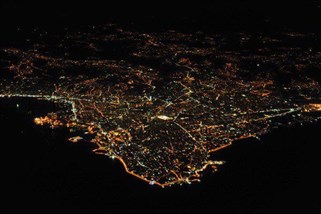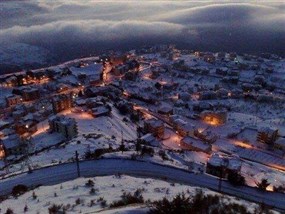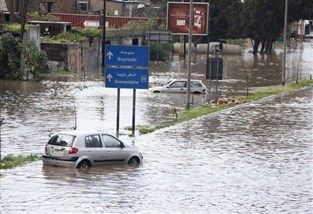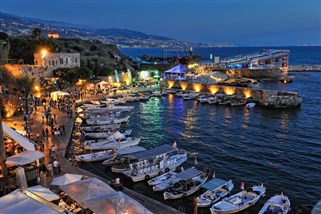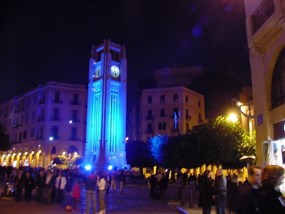10. Beirut ranked among world's top 25 cities by Condé Nast
Residents of the city might find it hard to believe, what with the multiple car bombs, rocket attacks, manic traffic, and perennial power and water shortages, but Condé Nast's readers voted it the 20th best city in the world in 2013, citing its "tapestry of sects, religions, and lifestyles that provide a feast for the mind of the intellectual."
9. 4G Internet
Both of Lebanon's service providers launched 4G Internet for the first time in 2013, ostensibly alleviating the country's notoriously sluggish connection speeds. However, at present the service is limited to specific areas in and around Beirut, and experts say Lebanon's infrastructure is inadequate to make fully efficient use of the technology.
8. Public sector workers win pay increase
After weeks of strikes and demonstrations, public sector workers - whose wages have only seen two minor increases since 1997 - persuaded the cabinet to refer a bill that would increase their pay to parliament. However, parliament has yet to actually approve the bill, and many economists argue incurring the additional expenditure during the present economic downturn could have dire repercussions.
7. General price levels unchanged
According to an October 2013 report from the Ministry of Economy, prices increased by just 0.5% in the 12 months since September 2012, compared to increases of 10% and 5% in the previous two years. This, however, is about the only good news for Lebanon's economy, which has otherwise taken a dramatic hit from the neighboring Syrian crisis and the associated refugee influx.
6. Culture continues to flourish
While security fears did prompt the unprecedented relocation of the Baalbek International Festival, cultural events continued to thrive across the country, with several new street fairs, exhibition spaces, and literary publications, inter alia, being added to the annual itinerary. A Syrian Contemporary Art Fair showcased the talents of those forced to leave the war at home. And even Tripoli, now the site of almost weekly gun battles, successfully launched its first film festival.
5. Secularists win big at AUB student elections
It is often said that elections at the country's preeminent university indicate the political sentiments prevailing in the wider nation at large. If so, then Lebanon's sectarian order may be facing growing resentment, given that secular students made unprecedented advances at the polls in November. As an added bonus, the two secular candidates who went on to fill the powerful Vice President and Treasurer seats are both women, as is the Amal candidate who will assume the role of Secretary.
4. Oil and gas sector launches
Lebanon's nascent oil and gas sector began to take firm shape in 2013, with the new Petroleum Administration granting approval to 46 local and international companies to bid for exploration rights. However, owing to the present lack of a government, two decrees necessary to get the bidding process underway have yet to be signed, and so progress to date has chiefly been symbolic.
3. Return of kidnapped pilgrims
Very rare indeed is it for something to go right in Syria these days. Yet 2013 did bring one silver lining to the nine Lebanese pilgrims held captive in Azaz, near Aleppo, whose 17-month-long ordeal was finallybrought to an end in October. Unfortunately, a number of other Lebanese are still being held in Syria, among them several nuns and the journalist Samir Kassab.
2. Progress on domestic violence law
Following the harrowing murder of a 31-year-old mother, Roula Yaacoub, by her abusive husband in July, a long-awaited draft law criminalizing domestic violence was approved by a parliamentary committee. Much like the public sector wage bill, however, parliament itself has not yet voted on the law, and feminist activists have further concerns that the draft doesn't go far enough (it does not, for example, clearly recognize marital rape as a form of assault).
1. First civil marriage and birth
On April 25th, 2013, Nidal Darwish and Kholoud Succariyeh made Lebanese history when the interior ministry officially registered their civil marriage, the first ever carried out inside the country. The couple exploited an obscure law dating back to 1936 that circumvented the traditional sect-based marital system. They then made further history when they left the "sect" field blank on their newborn son's birth certificate, thus giving birth to Lebanon's first "civil baby." Earlier this month, the Justice Ministry announced it would prepare a draft law to replace the 1936 article and formally recognize the legality of civil marriage in the Lebanese legal code.



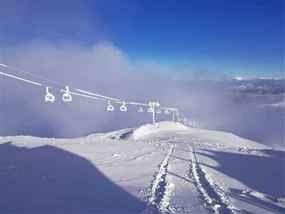
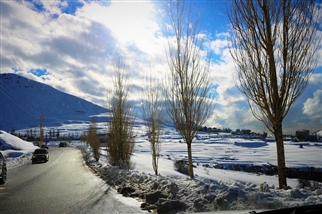
-151029114153325.jpg)
-150908103833282.jpg)

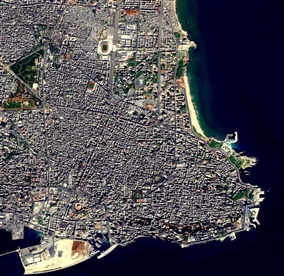

-140410013152695.jpg)
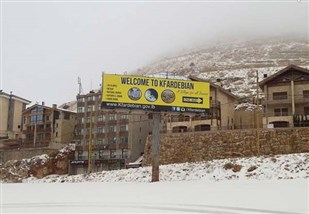
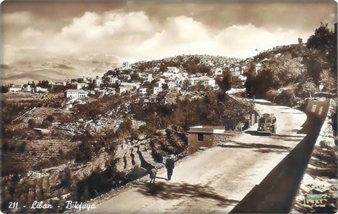
-131205120123197.jpg)
